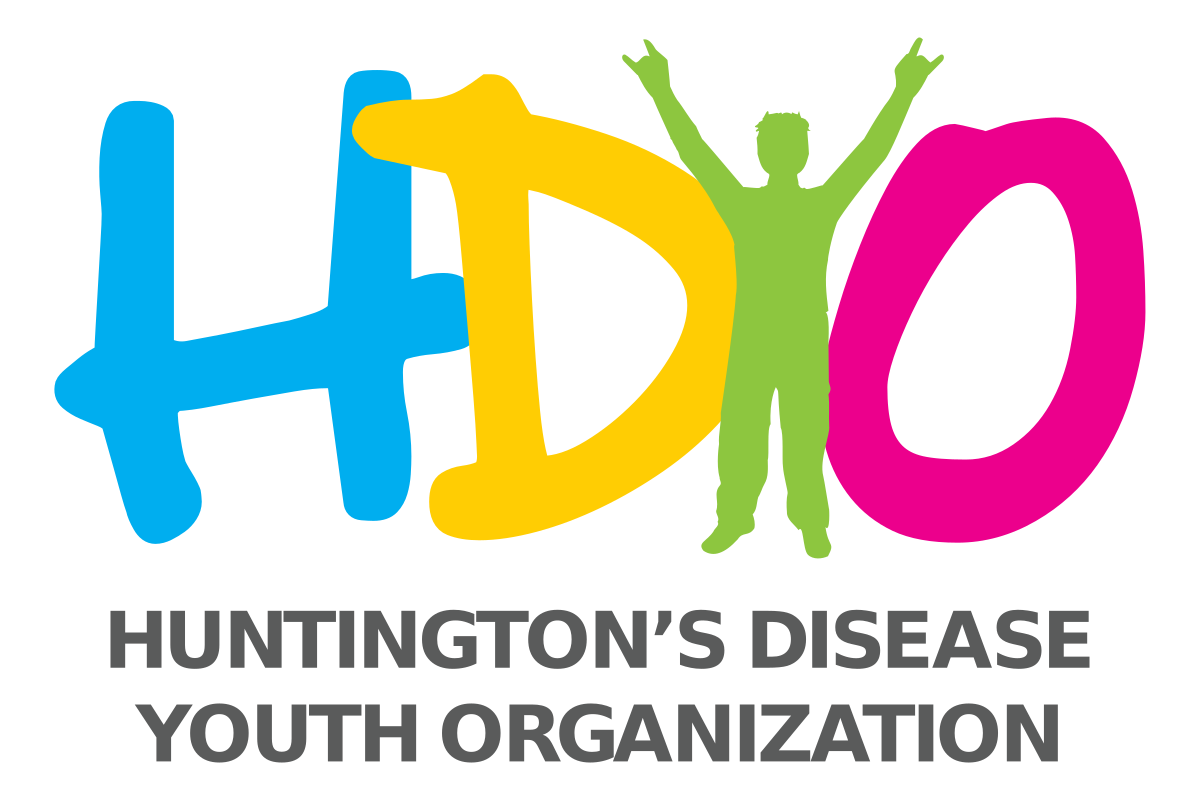Decisions on Genetic Testing
June 22, 2025

HDYO has more information about HD available for young people, parents and professionals on our site:
www.hdyo.org
*Reviewed by Education and Research Committees 2025
Genetic testing for Huntington’s Disease (HD) determines whether a person has inherited the expanded HTT gene mutation that leads to symptoms of HD. Testing can provide clarity on genetic status, but it also presents complex emotional and practical challenges. For people at risk for HD, making an informed decision is important to ensure they are emotionally and practically prepared for the outcome. Support from healthcare professionals who provide guidance, resources, and emotional support can help people at-risk to consider the benefits and consequences of testing.
The decision to undergo genetic testing is highly personal, and every experience is unique. Some people who feel ready to test when they begin the counseling process later experience uncertainty or reconsider their decision. Others may be indecisive for a long time, reflecting on their readiness just before making a final decision to test. Some people may feel they are ready for testing and continue to feel that way through the entire process. The testing and counseling process can serve as an opportunity for reflection, ensuring that people are prepared to make a choice that aligns with their personal values and circumstances.
Genetic counselors, neurologists, social workers, psychologists, and mental health specialists play a vital role in helping people at risk, by ensuring they have the knowledge and support needed to navigate the decision-making process.
Preparing Individuals for Genetic Testing
Understanding the Testing Process
Before undergoing genetic testing, individuals should understand the process, which can vary from site to site and country. This can include:
- Pre-test counseling – how long it takes, what it involves, and how to prepare emotionally
- Testing – specifics of sample collection, and the timeline for receiving results
- Results - how they will receive their results
- Post Results - what are the next steps, coping strategies, and whether there are additional counseling opportunities or support
Providing Balanced Information
It’s natural for a person to think about what they might do if they were “in another person’s shoes”. That way of thinking, however, can lead to judgments about someone else’s testing decision. It is essential for individuals to receive unbiased, accurate, and balanced information about genetic testing. Individuals should have the autonomy to make informed decisions based on their own values and circumstances. This includes understanding:
- The different possible test outcomes (positive, negative, or grey area)
- The implications of each result on personal and family planning
- The emotional and psychological impact of knowing one’s genetic status
Addressing Emotional Readiness
Many individuals face anxiety, uncertainty, and external pressures when considering genetic testing. Common concerns include:
- Fear of a positive result and its impact on mental and physical health
- The uncertainty of living at-risk without testing
- Family expectations and the influence of loved ones’ opinions
- Testing negative, regrets, and survivor’s guilt
Planning for the Future
Regardless of the result, it can be empowering to begin thinking through next steps and future planning:
- If testing positive, individuals may explore clinical trials, life planning, mental health support, and long-term care strategies.
- If testing negative, they might navigate complex emotions, including survivor’s guilt, and redefine their identity and role within the HD community.
Making space to consider work, education, relationships, and personal goals after results helps create a sense of control and direction. Post-test counseling can be essential in this phase.
Preparing to Share Results with Loved Ones
Disclosing genetic test results is deeply personal and may feel daunting. It can help to:
- Reflect on who you want to tell, when, and how much you want to share
- Anticipate possible reactions and practice what you’d like to say
- Seek advice from a counselor or someone in the HD community who has shared their results before
Planning conversations ahead of time can reduce stress and promote open, respectful dialogue. It also allows you to set emotional boundaries and prioritize your own wellbeing.
Encouraging a Support System
Genetic counseling, individual counseling, and support groups provide a safe space to discuss these concerns. It can be beneficial for people facing the decision to test for HD to speak with others.
Engaging with advocacy associations throughout the process can provide valuable support. Connecting with the HD community, through online forums and support groups, can provide insight from others who have undergone testing and help individuals feel less isolated. Check out the Local HD resources and organizations.
Additionally, involving trusted individuals in the process can offer emotional support, guidance, and reduce the feeling of isolation. Engaging with these resources early on can provide ongoing encouragement and information to navigate the process.
HDYO Genetic Testing Checklist
For those considering genetic testing, the HDYO Genetic Testing Checklist serves as a valuable guide in navigating the process. This resource outlines key considerations, including emotional preparedness, practical steps, and support options, helping individuals make informed decisions that align with their current situations. By using this checklist, individuals can better understand what to expect, access relevant support networks, and feel more confident in their decision-making journey. More information can be found here: HDYO Genetic Testing Checklist
Emotional Responses to Genetic Testing
Coping with Waiting Period Anxiety
The time between taking the test and receiving results can be one of the most emotionally challenging phases. Individuals can experience heightened anxiety, stress, and uncertainty during this waiting period. Common feelings include racing thoughts about potential outcomes, difficulty concentrating, and emotional changes.
To manage this period more effectively, individuals can consider:
- Engaging in grounding activities such as exercise, mindfulness, or hobbies that offer distraction and stress relief
- Connecting with supportive people, whether that be a friend, family member, counselor, or peer in the HD community
- Limiting excessive online research that may lead to information overload or increased worry
- Seeking reassurance from professionals, such as a genetic counselor or therapist, who can offer coping tools and context
Possible Emotional Reactions to Results
Genetic test results can provoke a wide range of emotional responses. Some reactions might be immediate, and others may happen over time. It’s important to acknowledge that all reactions are valid and that the emotional journey is unique to each person.
- Negative Result: Testing negative for HD often brings relief and clarity, but it can also lead to complex emotional responses such as survivor’s guilt and a continued sense of responsibility to those still affected. For more on navigating post-test emotions and staying connected, see HDYO's article on Understanding Gene Negative.
- Positive Result: Receiving a positive test result for HD can lead to a range of emotional responses, including grief, fear about the future, and shifts in personal identity. To better understand and cope with a positive result, HDYO offers guidance in their article on Understanding Gene Positive.
These emotional responses are deeply personal and not always predictable. Creating space to experience them and seek support is essential.
Support Strategies for Professionals
Professionals supporting individuals through genetic testing play a vital role in emotional care. Effective strategies include:
- Active Listening and Validation: Creating a safe, non-judgmental space where individuals feel heard can be incredibly grounding. Reflecting emotions back and acknowledging the complexity of the decision can help validate feelings.
- Referring to Mental Health Counseling: Professionals should feel confident and comfortable referring individuals to specialists who can provide therapeutic support and further guidance. This is especially important post-results, when emotional responses can intensify.
By staying attuned to the emotional landscape of genetic testing, professionals can ensure individuals receive the care and respect they need throughout the process.
Post-Result Coping Strategies
Genetic testing doesn’t end with a person receiving their test results. The period after learning one’s status often requires continued emotional and social support. Unfortunately, many people report feeling "dropped" or unsure of what to do next. Ongoing support is critical.
For Those Who Test Positive
A positive result can raise both immediate and long-term concerns. Ongoing support should include:
- Mental Health Support and Coping Strategies: Access to therapy, support groups, and community spaces can help individuals process grief, fear, and identity questions over time.
- Obtaining Support: Connecting with healthcare providers about preventive care and thinking about work and family life with support can empower individuals to regain a sense of agency.
- Navigating Relationships: Disclosing testing status with potential partners and other future relations can be difficult. Having guidance on how and when to have these conversations can help reduce stress and foster connection.
For Those Who Test Negative
While relief is often the initial response, people who test negative may experience survivor’s guilt, regret, or feel unexpectedly distanced from their at-risk, gene positive, or diagnosed loved ones.
Helpful approaches include:
- Acknowledging Emotional Complexity: Just because the result is "good news" doesn't mean the feelings that may follow are simple.
- Remaining Connected to the HD Community: Volunteering, advocacy, or simply staying informed can help individuals maintain a sense of purpose and connection.
For Those Who Choose Not to Test
Some individuals decide not to proceed with testing. This is a completely valid choice. Support for this decision is essential and includes:
- Affirming Autonomy: Choosing not to know one’s genetic status is a deeply personal decision and deserves respect.
- Managing Ongoing Uncertainty: Individuals may need help navigating how to live with uncertainty, particularly in terms of health planning, relationships, and mental health.
- Offering Continued Resources: A person who chooses not to test now might reconsider this option later on. Providing ongoing access to support groups, counseling, and up-to-date information ensures they can revisit the decision if and when they’re ready.
Conclusion
Genetic testing is a deeply personal and complex decision that impacts emotional well-being, relationships, and future planning. There is no right or wrong choice, only what feels right for each individual based on their values, readiness, and circumstances. Whether someone chooses to test, delay, or not test at all, it’s essential that their decision is informed, supported, and respected. With guidance from professionals, tools such as the HDYO Genetic Testing Checklist, and connection to the HD community, individuals can navigate this journey with greater confidence and care. Ongoing support before, during, and after testing is key to helping individuals manage uncertainty, process emotions, and make empowered decisions at every stage.



